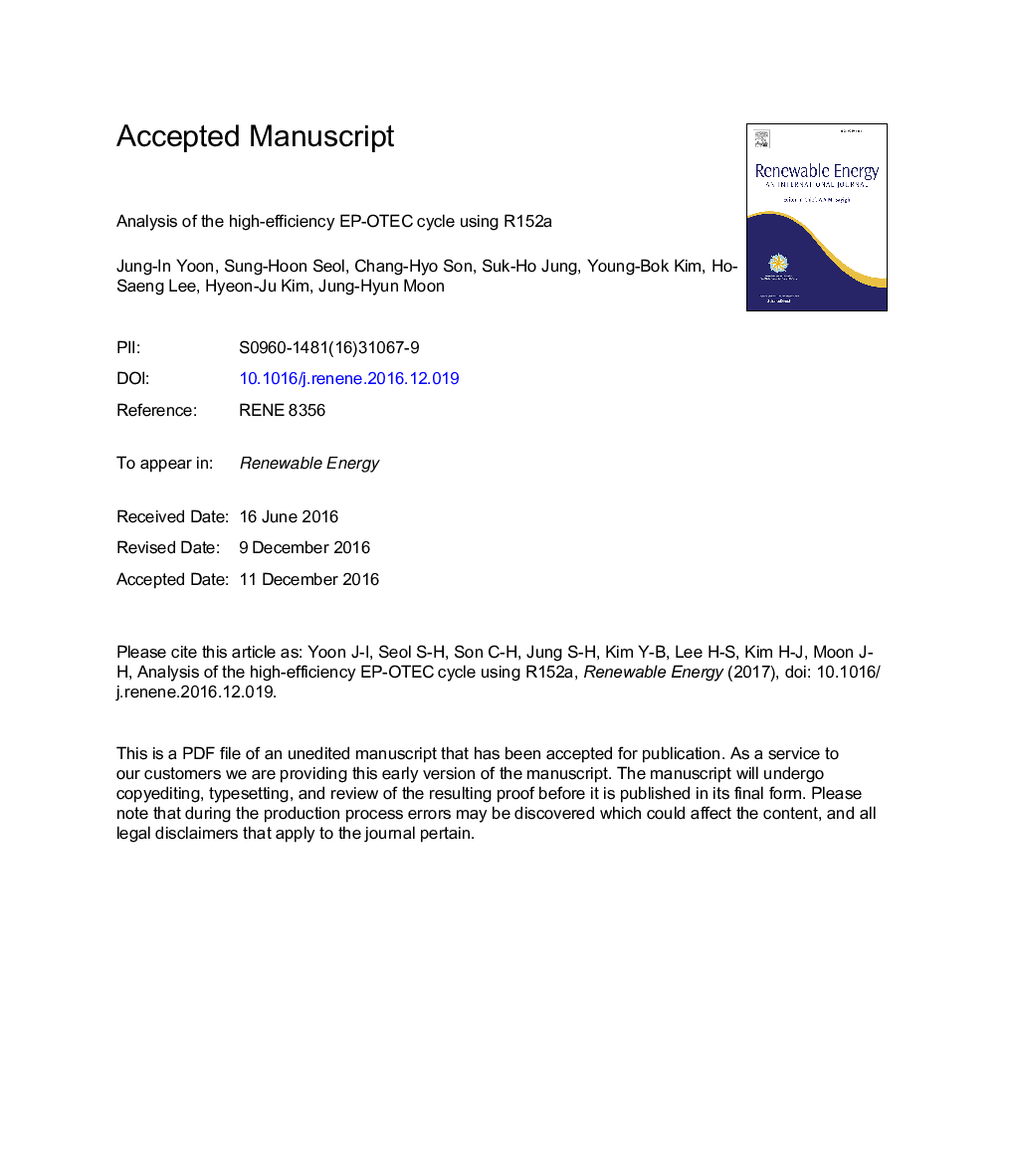| Article ID | Journal | Published Year | Pages | File Type |
|---|---|---|---|---|
| 4926443 | Renewable Energy | 2017 | 31 Pages |
Abstract
Ocean thermal energy conversion (OTEC) cycles utilize renewable, eco-friendly heat sources. However, their low system efficiency diminishes their advantages and impedes commercialization opportunities. In this study, a liquid-vapor ejector and a motive pump are used to enhance the efficiency of the OTEC system through a modified version called the ejector pump OTEC (EP-OTEC) cycle. By applying a liquid-vapor ejector, lower turbine outlet pressure may result than in the basic OTEC cycle. Additionally, the motive pump increases the motive pressure, thereby strongly affecting the performance of the liquid-vapor ejector. The heat source temperature, mass fraction of the motive flow, and motive pressure are varied to analyze the performance characteristics of the EP-OTEC cycle. Firstly, the higher heat source temperature yields greater turbine power for a given mass flow rate in an evaporator. Moreover, results show that the net power of the EP-OTEC cycle is clearly larger than that of the basic OTEC cycle, proving its superiority. The optimized EP-OTEC cycle using R152a yields a system efficiency of 4.0%, which is 38% higher than that of the basic OTEC cycle.
Related Topics
Physical Sciences and Engineering
Energy
Renewable Energy, Sustainability and the Environment
Authors
Jung-In Yoon, Sung-Hoon Seol, Chang-Hyo Son, Suk-Ho Jung, Young-Bok Kim, Ho-Saeng Lee, Hyeon-Ju Kim, Jung-Hyun Moon,
